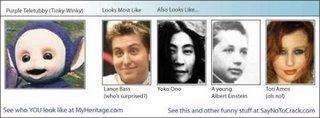
Hardly had the ink dried on my laser printer from yesterdays post about computers recognising movement when I came across and article about a computer that does just that. Check it out at http://www.newscientisttech.com/article/dn10387-surveillance-system-spots-violent-behaviour.html
It seems it can distinguish between friendly and hostile behaviour. Put one of these on a robot and let it roam the streets and we will live in a peaceful, though somewhat inhibited society.
Of course, the world has other problems apart from our trying to destroy each other. In our spare time we also try to destroy the world; but not any more, the people at GlobalSchoolNet are looking for ideas to prevent global warming. You can find their site at http://www.google.com/educators/globalwarming.html
The idea is to get children and young people around the world to submit ideas and work together collaborating on movies and projects to get it sorted.
Once crime and global warming have been solved there are quite a few other problems to keep us busy. You can find some of them at Save the World
Stan
It seems it can distinguish between friendly and hostile behaviour. Put one of these on a robot and let it roam the streets and we will live in a peaceful, though somewhat inhibited society.
Of course, the world has other problems apart from our trying to destroy each other. In our spare time we also try to destroy the world; but not any more, the people at GlobalSchoolNet are looking for ideas to prevent global warming. You can find their site at http://www.google.com/educators/globalwarming.html
The idea is to get children and young people around the world to submit ideas and work together collaborating on movies and projects to get it sorted.
Once crime and global warming have been solved there are quite a few other problems to keep us busy. You can find some of them at Save the World
Stan





